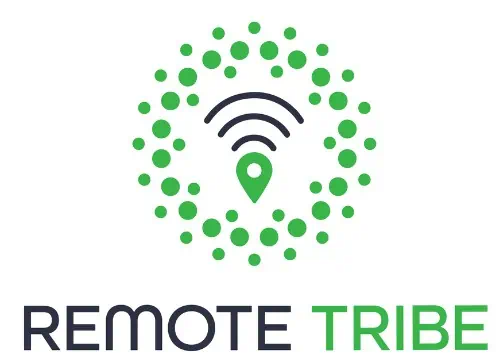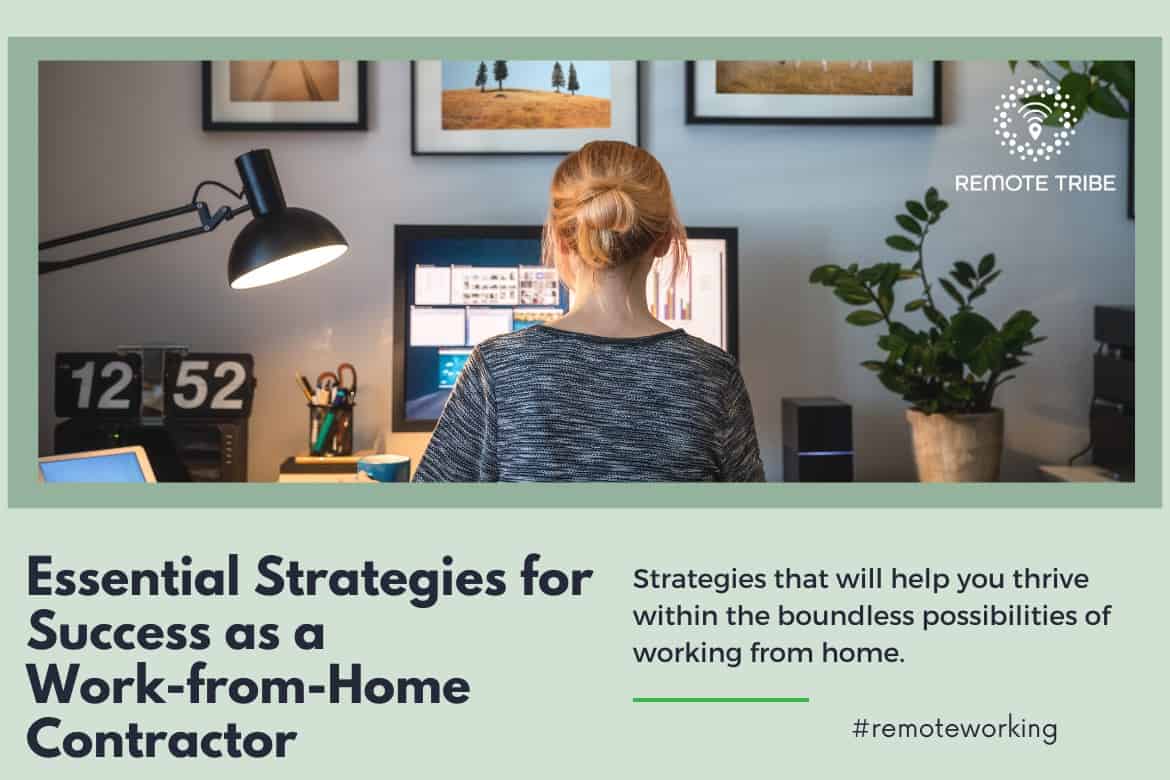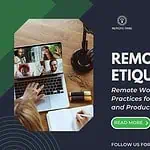Strategies as a Work from Home Contractor
The rise of working from home is not just a mere trend but a paradigm shift that has revolutionized how individuals engage with their professions. It has brought forth new opportunities that reach many industries, including contracting.
From working in a more comfortable environment to spending more time with their families, contractors now have the freedom to forge their careers from the comfort of their homes.
However, this dynamic landscape isn’t without its share of challenges. Despite being a liberating setup, working from home demands a distinctive set of skills and strategies to ensure success. Navigating this digital terrain requires a keen understanding of how to leverage the benefits while mitigating the challenges.
Amidst the advantages and challenges of working from home, ensuring the success of your profession while navigating this work setup lies in your hands. As a work-from-home contractor, you are not merely adapting to a changing work landscape — you are actively shaping it.To help you in this endeavor, this article will explore the essential aspects to consider when navigating this transformative work landscape. Within these discussions are strategies that will help you thrive within the boundless possibilities of working from home.
Create a Virtual Workspace
As a work-from-home contractor, one of the crucial factors that can significantly influence your success is the setup of your virtual workspace. This dedicated area not only serves as your operational hub but also shapes your mindset and work ethic.
What’s more, having this work-only zone enables you to eliminate distractions and establish a clear boundary between your professional and personal lives. Physically demarcating your workspace at home also creates a psychological shift that helps maintain focus and productivity.
An ergonomic setup is another fundamental aspect of a conducive workspace at home. Invest in furniture that prevents physical strain, such as a standing desk and a comfortable work chair.
These pieces of equipment are designed to help you stay focused and more productive, as they elevate the discomfort that comes with working in front of a computer or hunched over paperwork all day.
Equipping yourself with the right tools not only ensures your professional efficacy but also reflects your commitment to delivering exceptional results to your clients or collaborators. Prioritize investing in quality equipment that aligns with your work requirements.
A reliable computer, a high-speed internet connection, and relevant software are your gateway to seamless communication and efficient project management.
Time Management and Productivity
On top of pursuing both your professional and personal interests, you must master the art of time management. The dynamic landscape of remote work demands your ability to efficiently allocate your time to determine your success in the contracting field.
To effectively manage your time, consider establishing a daily routine that reflects the structure of a traditional workday. Set a start and end time for your work hours that allow you to navigate your professional realm with purpose and clarity.
This routine helps condition your mind to transition into work mode and transition back to personal time once your workday concludes.
Setting your goals and priorities will also help you maximize your time and productivity. Prioritize these tasks based on urgency and importance to ensure that your efforts are always aligned with your overarching goals.
Another way to optimize your productivity while working from home is to embrace time-blocking techniques. A popular method you can try is the Pomodoro Technique, which is characterized by focused work intervals followed by short breaks.
Additionally, consider using time-tracking apps to monitor your tasks and identify potential time sinks. These techniques foster discipline, enhance concentration, reveal areas for improvement in your work process, and prevent burnout.
Communication in the Virtual Space
Communication is the lifeline that connects you to clients, collaborators, and the broader professional ecosystem as you work from home. Your ability to communicate effectively can transcend physical distance and establish a bridge of understanding.
Using digital communication tools helps convey your ideas, questions, and updates transparently. For instance, video conferencing platforms bring a human touch to interactions to foster rapport and understanding
Meanwhile, instant messaging tools facilitate quick exchanges, and emails serve as official records of conversations. Ensure that you write these messages with clarity and are straight to the point to minimize misunderstandings and showcase your professionalism.
Thriving in the virtual world also requires you to keep yourself and the people you work with updated on the latest developments in your projects.
Scheduled check-ins with clients or project managers ensure the alignment of your ideas every step of the way, allowing you to clarify expectations, provide updates, and address concerns. These interactions also foster a sense of collaboration and trust, which are vital for successful remote work relationships.
Maintain Work-Life Balance
Striking a harmonious balance between your professional and personal lives is not just a luxury — it’s a necessity for your success and well-being.
Setting boundaries is your priority when striving for a healthy work-life balance. Aside from creating a dedicated workspace and setting a start and end time for your work, you should also communicate your boundaries to clients, collaborators, and even family members to ensure mutual respect for your space and time.
You should also take regular breaks between tasks so you can recharge, stretch, and recalibrate your focus. The simple act of stepping away from your screen can rejuvenate your creativity and enhance productivity
After working, you should be ready to transition from work mode to personal time. You can do so by creating end-of-day rituals. These rituals can be as simple as shutting down your workspace, taking a walk, or engaging in a leisure activity. Such practices signal closure, allowing you to unwind and recharge for the next day.
Final words
The journey of a work-from-home contractor toward success is both exciting and demanding. Still, embracing the remote contracting landscape is an invitation to growth and accomplishment.
By creating a designated workspace, effectively managing your time, maintaining communication, and striving for work-life balance, you can nurture your career with the potential to flourish beyond limits.
So, as you navigate your way through virtual corridors, remember that your potential knows no bounds. Your success is not just a destination but it’s also an evolving journey that you’re uniquely positioned to shape.









